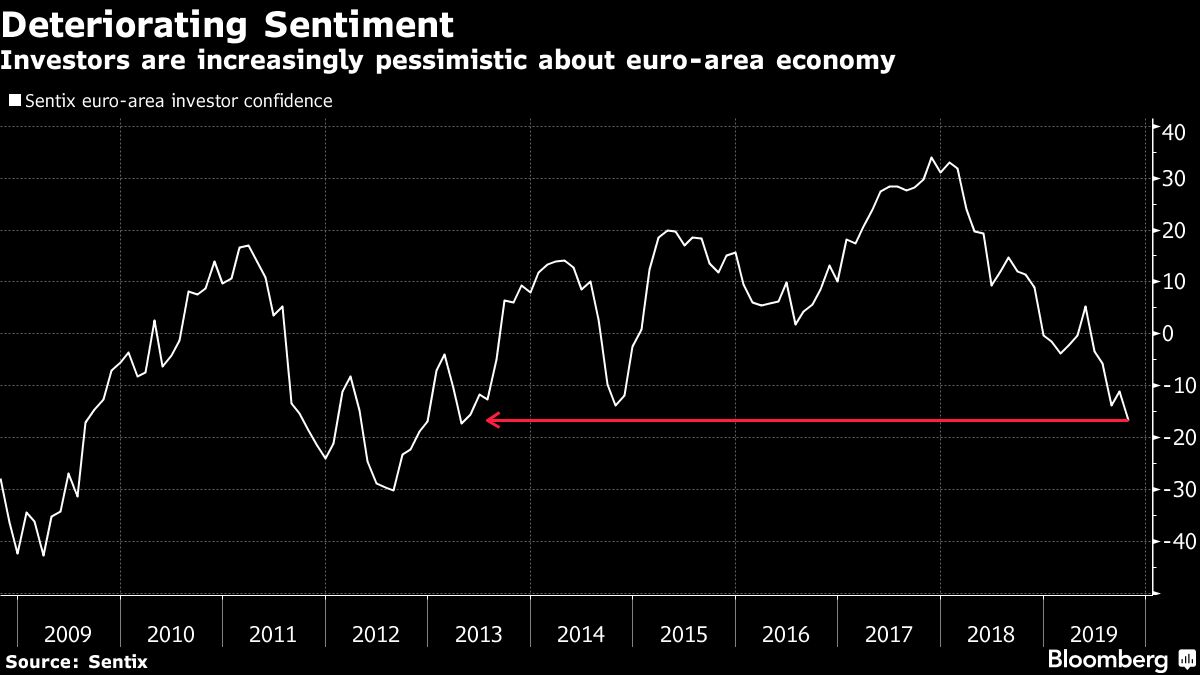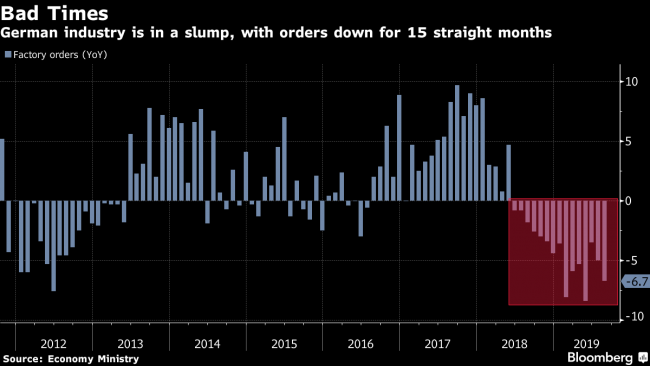(Bloomberg) -- Europe’s troubles intensified on Monday, with German industry suffering a fresh blow and investors turning more gloomy about the region’s economy.
German factory orders fell 0.6% in August, twice as much as forecast by economists. While the number can be volatile, it means demand has now fallen on a year-on-year basis for 15 straight months.
The decline is just the latest in a string of negative news that’s driving increased pessimism about the euro area. In a separate report, Sentix said its gauge for the region fell to a six-year low this month, and investors downgraded their view to “recession” from “downturn.”
The expansion of recession concerns to the broader euro area shows the mounting distress about Europe’s prospects. It also adds to evidence that investors may be losing faith in the European Central Bank’s ability to boost growth after it announced new monetary stimulus in September.
The gloom about Europe continues to drive demand for the safety of German bonds, where 10-year yields fell back to -0.6% on Monday. The euro slipped 0.1%, remaining below $1.10. It briefly dropped to the lowest since May 2017 earlier this month.
Much of the weakness is centered on Germany, which probably slipped into a technical recession in the last quarter. A manufacturing slump that initially looked like a temporary issue has proved more long-lasting, and prospects remain uncertain amid increased risks of a no-deal Brexit and an intensifying trade war.
Business expectations in Germany fell to the lowest in a decade in September, with the mood among factory executives cited as the main reason. Sentix’s German index is also at the weakest in 10 years, and industrial production figures on Tuesday are forecast to show a third straight decline.
What Bloomberg’s Economists Say...
“The German economy is probably already in recession. Factory orders dropped in August, having already plunged in July. That corroborates with other indicators that point to Germany’s industrial sector remaining in a funk.” -- Niraj Shah.
Policy makers at the ECB have called on European governments to step in with fiscal support, arguing that monetary stimulus alone can’t deliver the necessary boost.
Yet governments have been reluctant, with Chancellor Angela Merkel’s administration indicating that the situation has to deteriorate before significant aid will be unlocked.
“There is a lack of awareness on the part of politicians and the public that quick answers must be found in order to counter the pace of the downturn,” Sentix managing director Patrick Hussy said. “Monetary impulses are expected to produce wonders that they are increasingly no longer able to achieve on their own. The reaction of investors to this is clear.”


